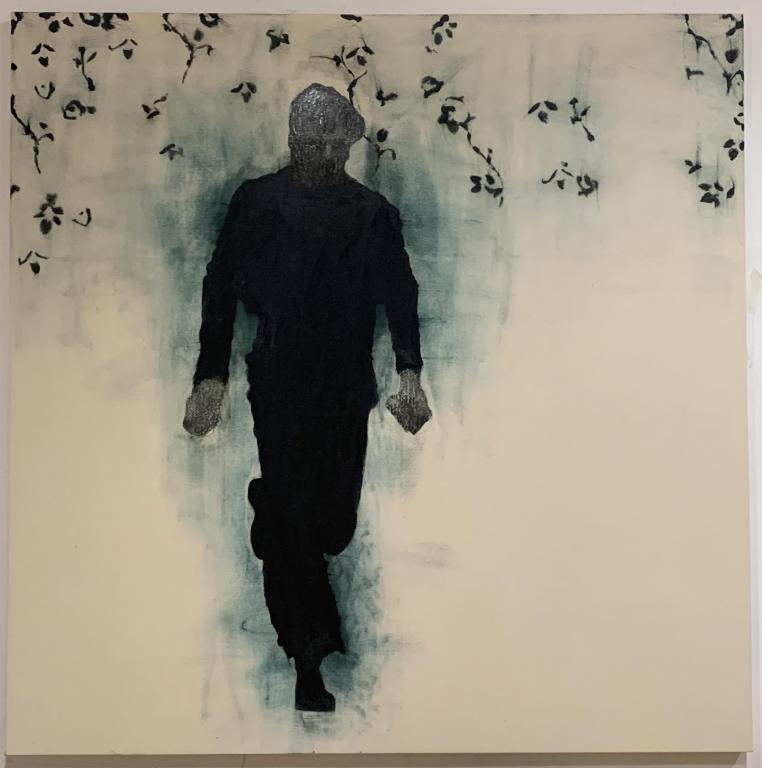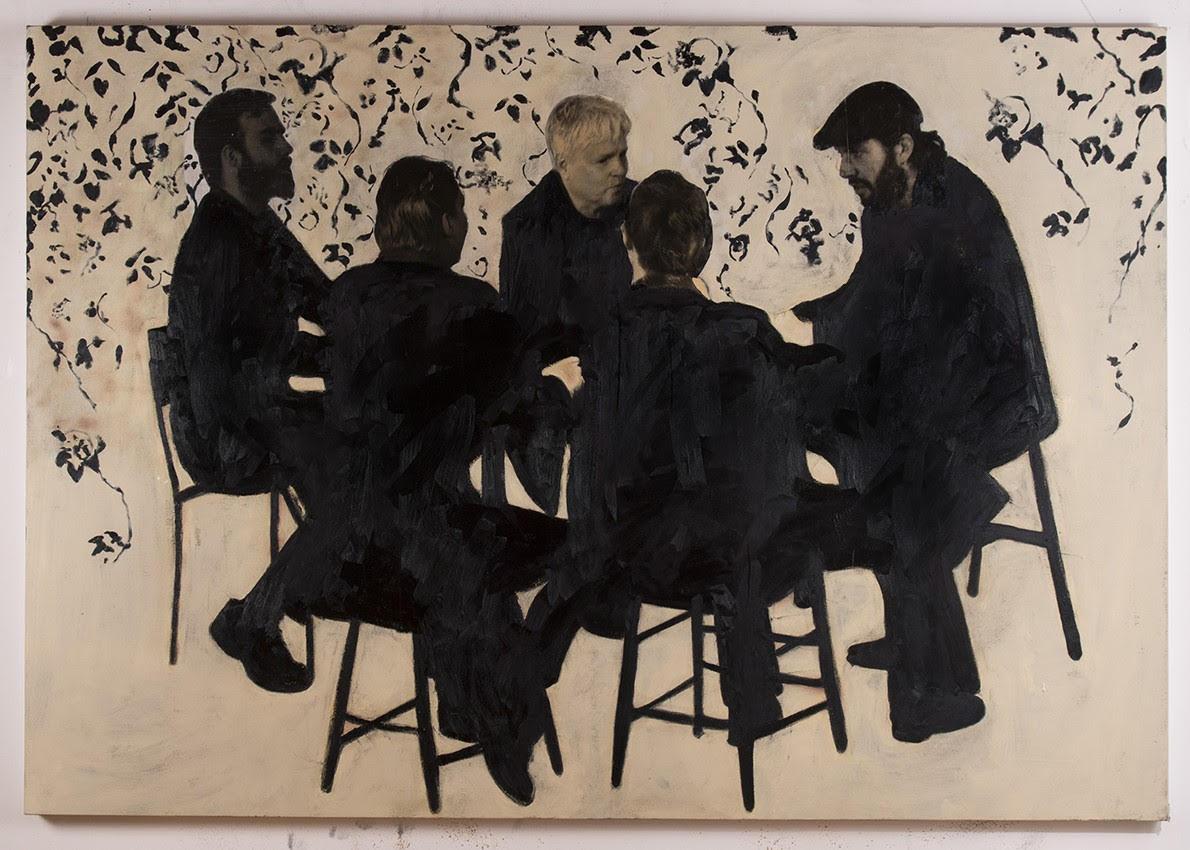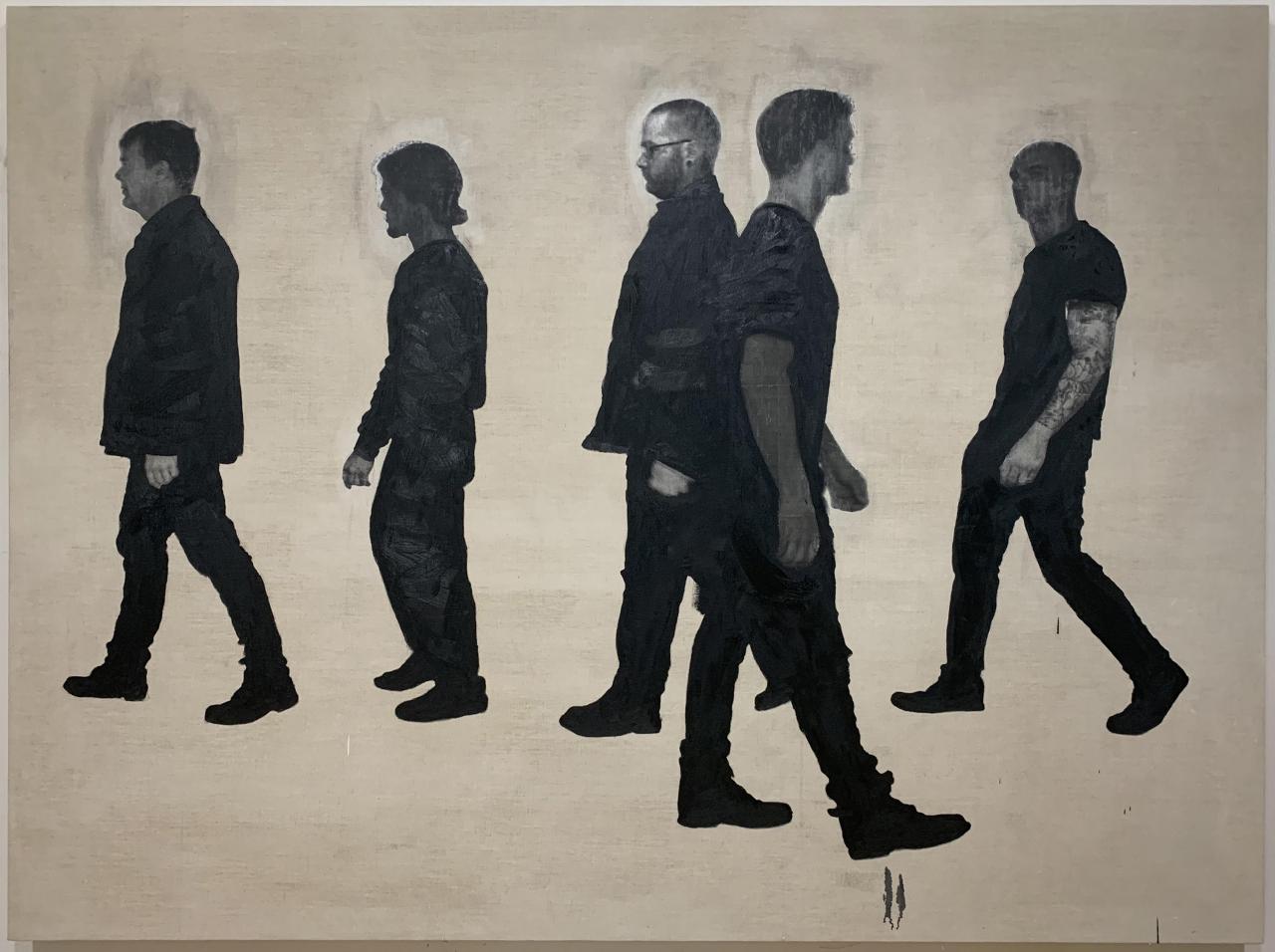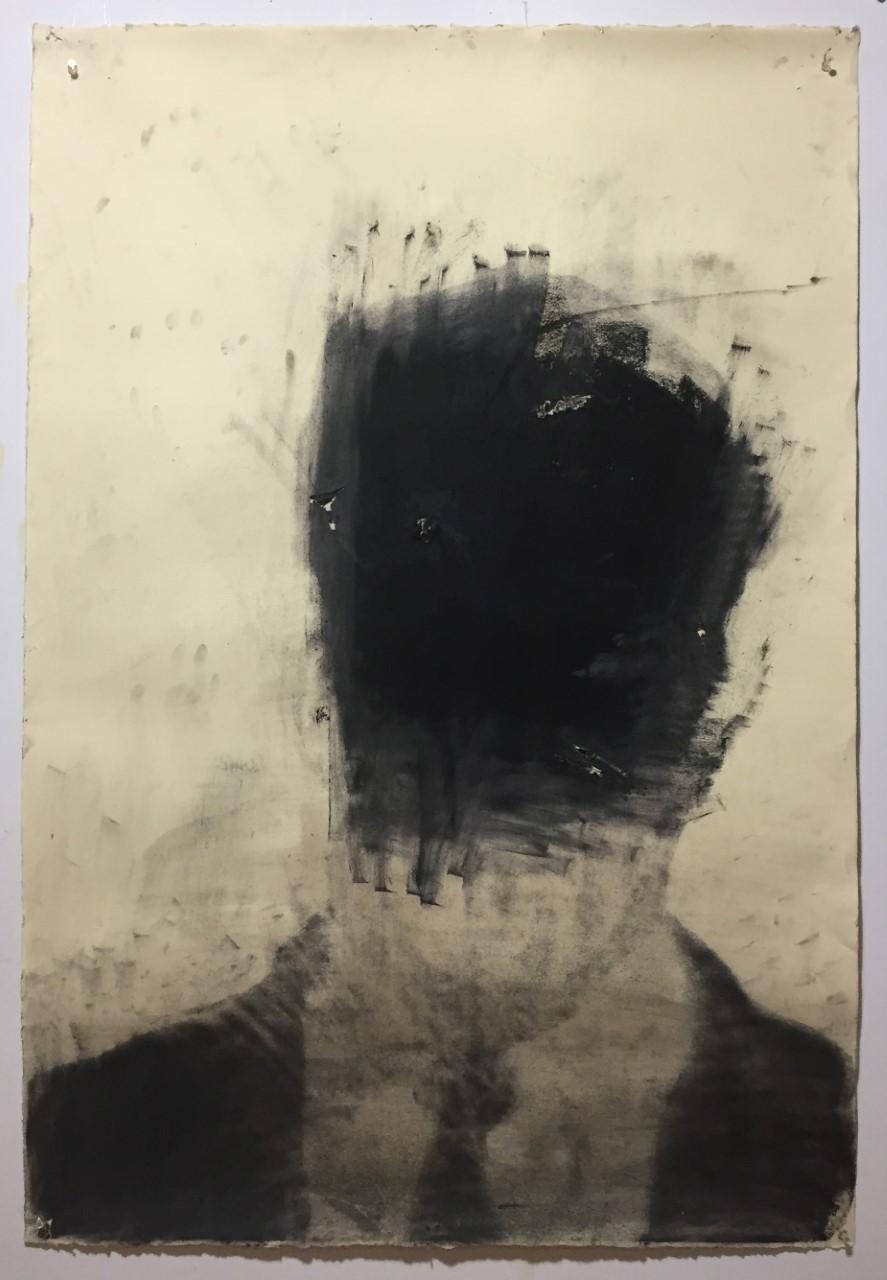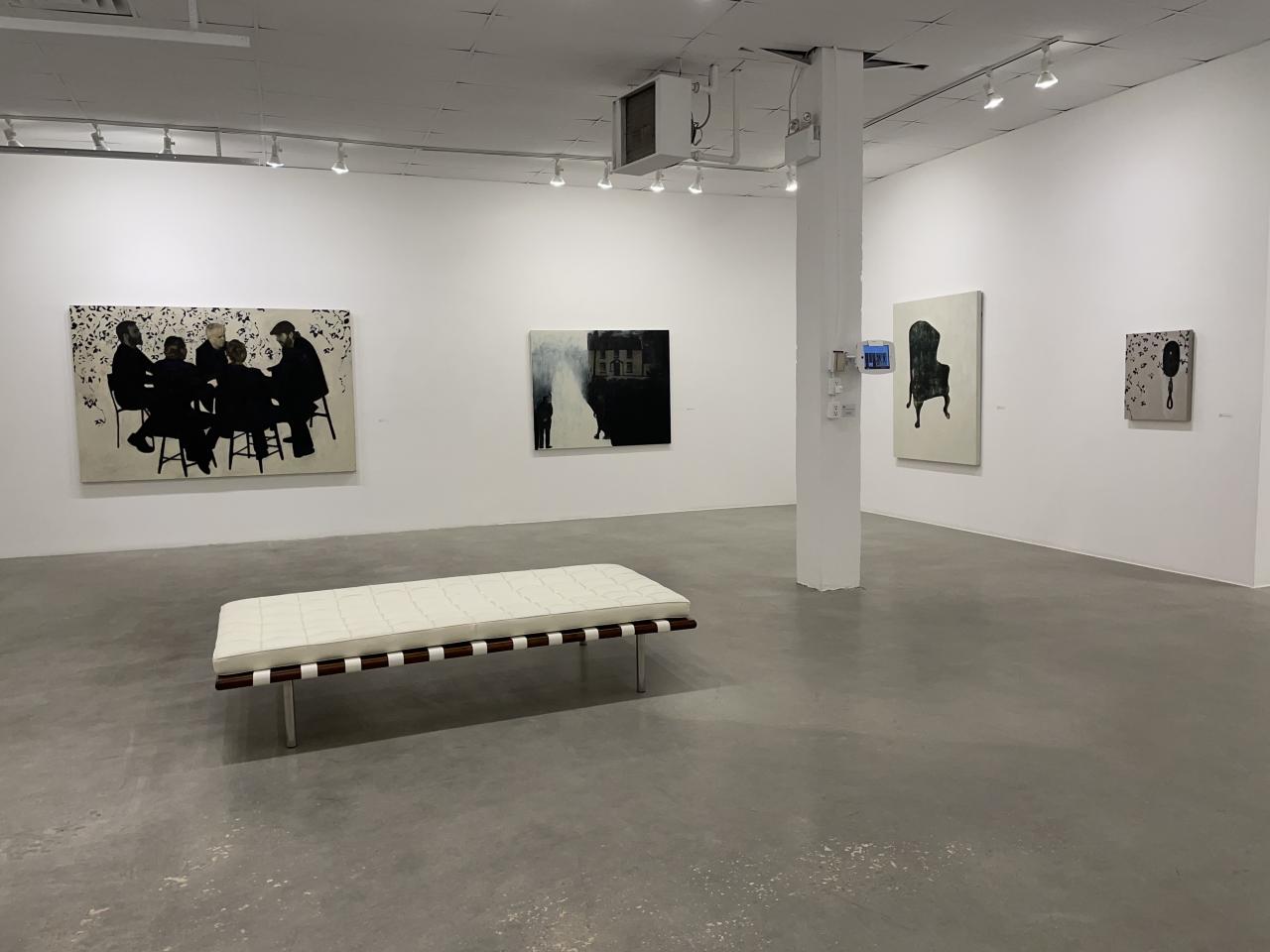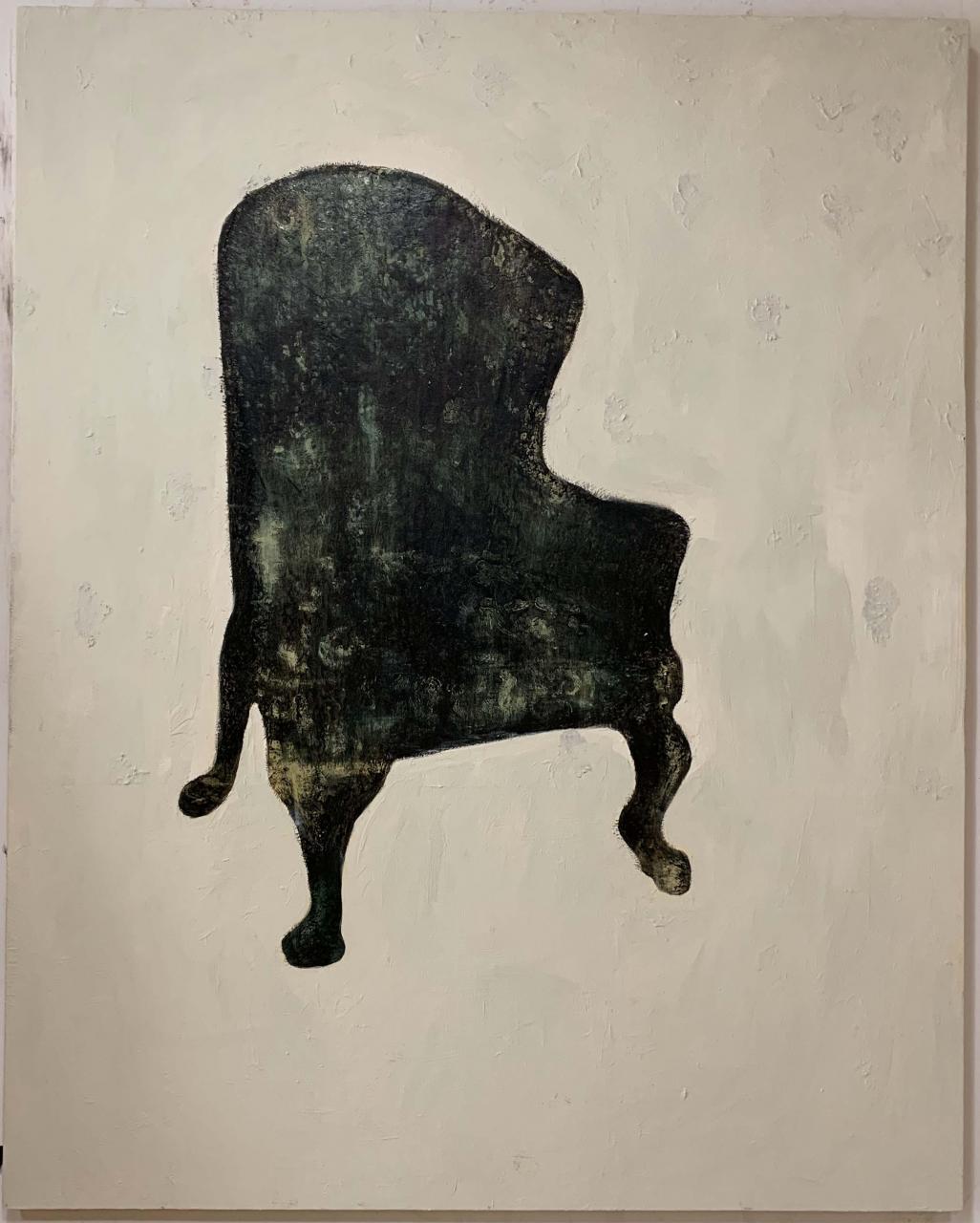My latest bodies of work continue my interest in social constructions and my family’s ties to politics in Ireland. Using oil paint and photo-transfers as my mediums, I recreate figures from both my family’s history as well as Ireland’s turbulent politicized past. The subjects in my work either held specific agendas in outlawed political organizations or were those who have been affected by these agendas. My process of layering and obscuring, protecting identity while simultaneously wiping it out, is an artistic exercise of the very activities that members of the resistance practiced during the Troubles as a means of self preservation to avoid detection during oppressive times.
I have recently spent time documenting Fork Hill – the village where my family is from and still lives. A border town, Fork Hill was the most occupied town in Northern Ireland’s history. As of July 31, 2007, the British military finally completely pulled out of the area.
My interest in documenting this area's history focuses on the role of identity and place in the context of conflict. I spent some time interviewing former IRA members regarding their activities, specifically in relation to my grandfather's house located twenty feet from the border which divides Northern and Southern Ireland. The house was used as a staging point for IRA maneuvers against the British army posted in the area. How do you tell a story that must remain faceless, nameless, and without evidence?
